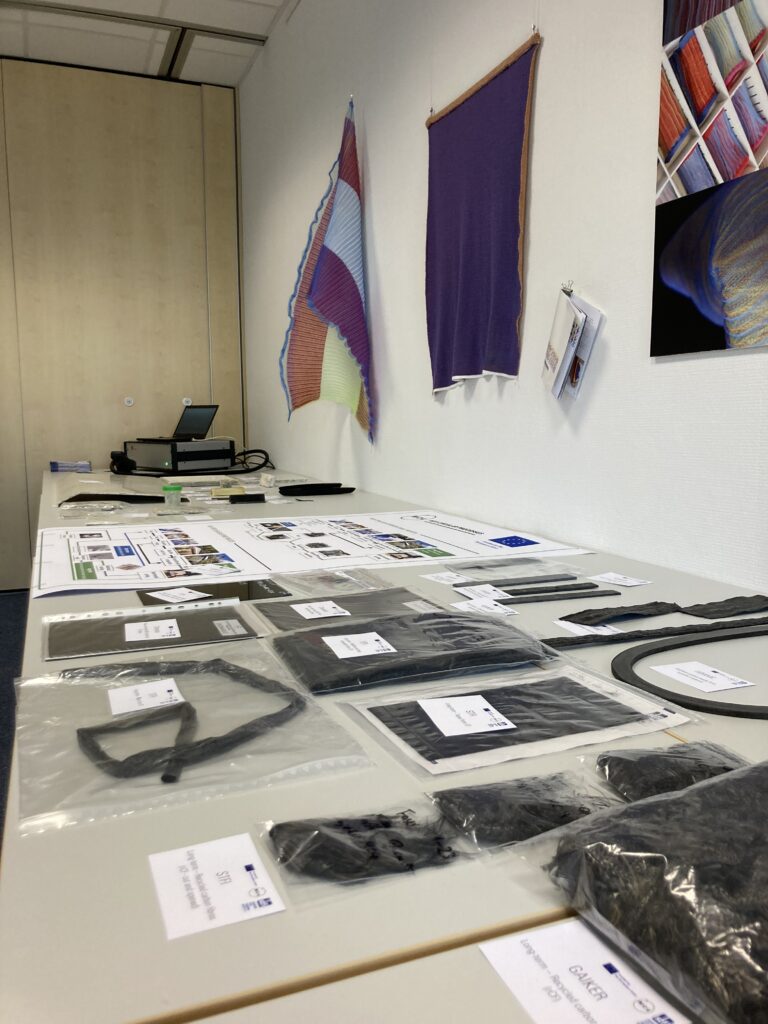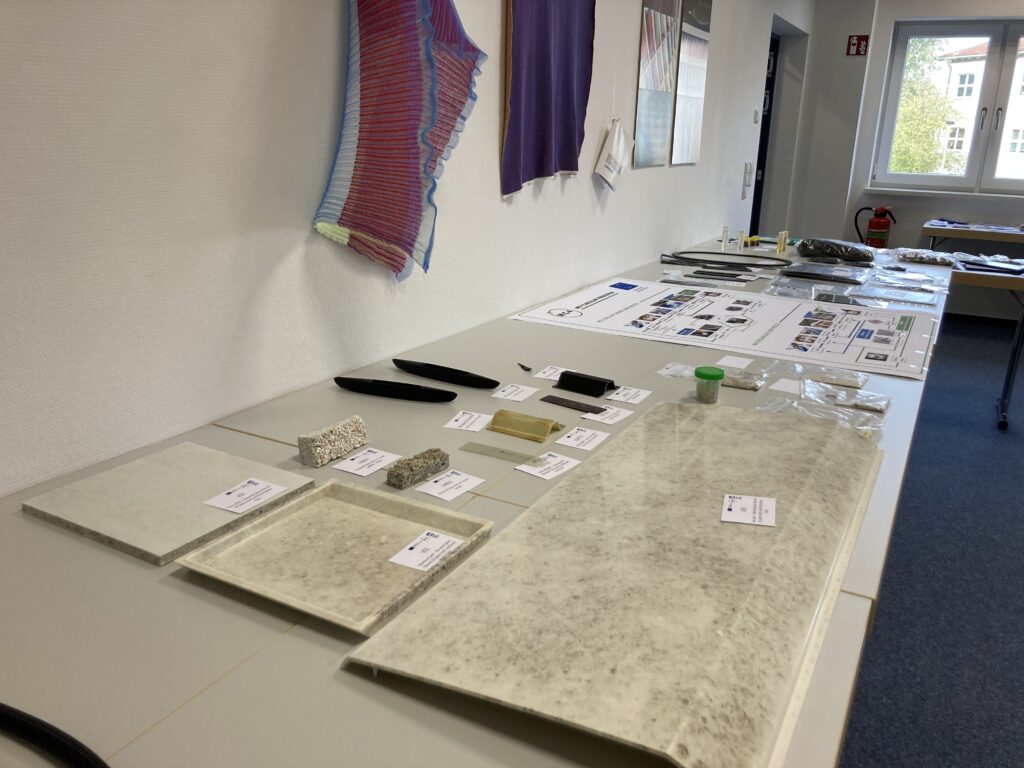Before we close the year 2023, we look back on the achievements of the MC4 project since its launch in April 2022.
MC4: Context and objectives
The primary objective of the MC4 project is to develop effective and economically viable recycling methods for composites made from thermoset materials, including both carbon and glass fibres. This initiative aims to support Europe’s efforts to achieve resource independence and master processing technologies. The project focuses on four distinct paths, with two aiming for a rather rapid implementation within the industry, while the others promise more profound, long-term impacts, and require additional developments. Given the significant cost difference between glass and carbon fibres, separate strategies are being explored for these two classes of composites.
Mid-term assessment of MC4
On October 18th, the consortium met at the facilities of project partner STFI in Chemnitz, Germany, for the mid-term project review. This review involved a comprehensive evaluation of the progress achieved during the first half of the project, with the assesment of each advancement.
Main achievements at this mid-term milestone include the demonstration of several steps of the recycling processes at the laboratory scale, a showcase of sample products made by the partners, and the successful realization of the initial steps & designs for the planned pilot actions.
Specifically, regarding the recycling of carbon fibre composites, uncured carbon fibre has been successfully recycled using two different processes: scrap reshaping and BMC intermediate material manufacturing. For the long-term recycling approach, cured carbon fibre has also been successfully separated from the matrix at the laboratory scale through chemical recycling (solvolysis), enabling the recovery of recycled carbon fibres. Additionally, the recovered organic (non-fibre) fraction has been analyzed and successfully reused as a filler in CFRP (carbon fibre-reinforced polymer) to improve fibre-resin interactions. The construction of a recycling pilot plant’s main reactor is scheduled to begin at the end of this year. In the textile domain, dry carbon fibre waste has been used to develop nonwoven materials at the laboratory scale, including airlay, carded, and then cross-lapped or stretched to tape, and first development for a semi-industrial scale quality control sensor have been investigated.

Regarding the recycling of glass fibre composites (GFRP), shredded GFRP have been used to create new components by adding a foaming epoxy resin. For the long-term recycling process, innovative methods have been employed to create a novel epoxy vitrimer resin formulation to allow GRFP reshaping. Tests are currently done at a lab scale, and provide a favourable appearance after reshaping, with no apparent cracks or delamination.
In parallel, a process has been developed for infrared sorting using FTNIR identification, enabling the discrimination of epoxy-amine systems from epoxy-anhydride systems used in carbon fibre composites, a critical element for the solvolysis process and the reuse of the remaining non-fibrous fraction.

Additionally, Life Cycle Assessment (LCA) has been conducted for linear process chains to evaluate the potential environmental impacts of conventional composite manufacturing processes for the carbon and glass fibre-reinforced composites parts to be used as references. Results analysis highlighted that material is the life cycle stage with the most significant impact (70-90%) in all linear case studies.
Plans for the remaining months of MC4
Next steps include the making of the pilot products using recycled materials across six distinct domains: automotive, boatbuilding, aerospace, sports equipment, civil engineering, and urban furniture, as well as standardization and skills development activities.
If you would like to learn more about MC4 and its progress, the project will, among other, be presented at the JEC exhibition from March 5 to 7, 2024, in Paris, and at Techtextil from April 23 to 26, 2024, in Frankfurt am Main.
“Funded by the European Union. Views and opinions expressed are however those of the author(s) only and do not necessarily reflect those of the European Union or the European Health and Digital Executive Agency. Neither the European Union nor the granting authority can be held responsible for them.”
